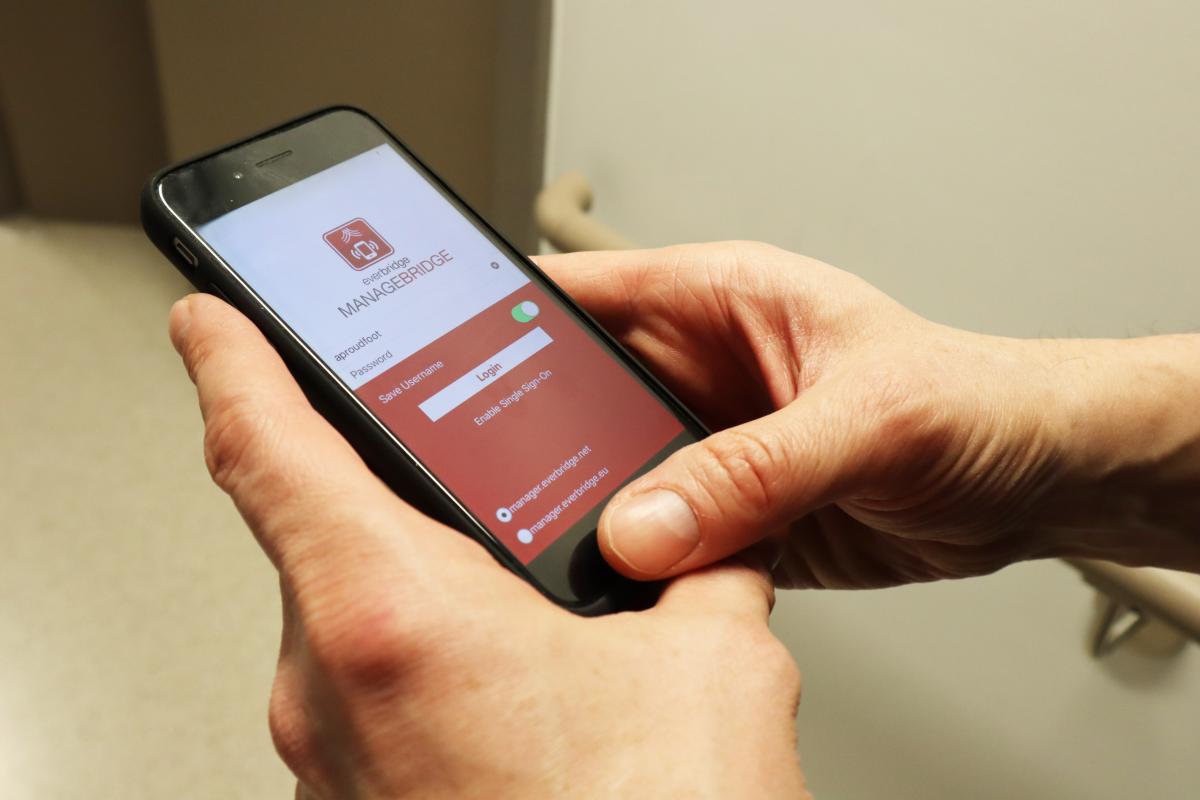The app that connects heart specialists to provide life-saving treatment

The SHOCK app sends an alert to professionals from multiple specialties to join an urgent conference call and discuss treatment options for patients with cardiogenic shock.
The app is the first of its kind in the UK and was made possible thanks to a £19,000 grant from Barts Charity.
What is cardiogenic shock?
Cardiogenic shock can happen to anyone. It happens when your heart fails to pump effectively, leaving your blood supply unable to meet the demands of your body. The most common cause is a heart attack but there are many other causes.
With your heart not working properly, your other organs - like your kidneys, liver and brain - also start to fail. You become very sick very quickly and can die within hours if your heart failure is not reversed. So, time is of the essence in diagnosing and treating the condition.
What makes diagnosis difficult is that the symptoms of cardiogenic shock can be similar to a severe infection.
Roughly five patients each week have cardiogenic shock at Barts Health NHS Trust and although access to heart centres has improved, the mortality in cardiogenic shock has remained the same over the last 10 years.
Using pumps to rest the heart
Traditionally, drugs have been used to help hearts pump when they are failing. But in the last 10-15 years, devices and pumps have increasingly been used to allow hearts to rest and recover, restoring blood flow to vital organs and resupplying oxygen to the body.
At St Bartholomew’s Hospital, pumps are usually used for between three and 14 days, and then the heart is assessed to see if recovery is possible.
Pumps – like extracorporeal membrane oxygenation (ECMO) – will not help all patients with cardiogenic shock, so a decision needs to be made very quickly about whether a pump should be used or not.
Introducing the SHOCK app
In 2016, critical care consultant Alastair Proudfoot (pictured) used a £19,000 grant from Barts Charity to introduce the SHOCK app. 
If a patient at St Bartholomew’s Hospital – or any other hospital in the Trust – is suspected of having cardiogenic shock, an alert is sent out on the app to a group of heart specialists to dial in to a SHOCK conference call.
The app uses the same software that the Metropolitan Police use for crisis management.
No matter what time of day, a group of specialists, including cardiologists and heart surgeons, can discuss whether the patient has cardiogenic shock; whether a pump should be used, and the logistics of getting support to them in a timely manner, which may involve sending a team out to them.
“It has revolutionised the way we deliver care,” says Dr Proudfoot.
“It’s novel in the UK, no other heart centres are using this. Not because they don’t believe in the technology, but because there’s no funding.
“You need to make decision rapidly, in real time. The SHOCK app allows us to bring collective expertise to the patient bedside, using the pumps in the patients who will most likely benefit.”
Benefitting patients
“We had a patient recently who had an existing heart condition and was pregnant with her first child.
"During preparation for delivery at The Royal London Hospital, her heart stopped and she had a caesarean section whilst she was in cardiac arrest.
After the SHOCK alert was raised, we went to The Royal London Hospital and put her on an ECMO pump. She made a remarkable recovery.
“Another 19 year-old lady contracted E.coli infection from a takeaway meal.
"Initially, she went to her local hospital and then onto UCLH as her condition became more complicated. She was very unwell, with disease affecting her kidneys, liver, and eyes, as well as her heart.
"Following the SHOCK call, she was transferred to St Bartholomew’s Hospital for ECMO and I’m confident that she would not be alive without that treatment.”
Charity support
Funds from Barts Charity were used to pump-prime the project for the first three years.
Dr Proudfoot adds: “With Barts Charity funding, we could demonstrate the clinical effectiveness of the technology.
"The hospital now funds it because we were so convinced of its benefits.
"Everyone found it transformative. There is no way we could have done that without charity money.”
